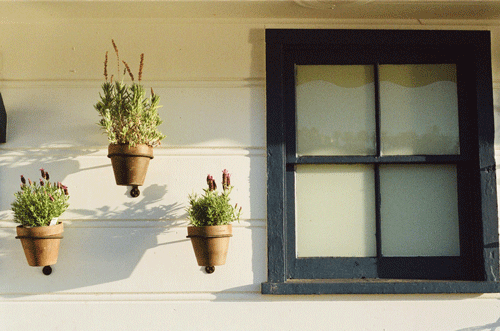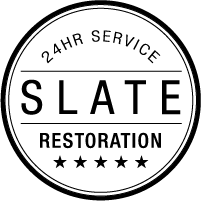How to Prevent Water Damage in Your Home

While you can’t always predict when a pipe will break in your basement or when a storm will cause your roof to spring a leak, there are steps you can take to prevent water damage in your home. All it takes is a little time, effort and some routine home and appliance maintenance. So while you’re making your to-do list for this weekend, keep these tips in mind. You might save yourself from a major headache in the future.
- Clean out roof gutters. We may not get much rain here in the desert, but that’s all the more reason to get out your ladder and clean your gutters. Debris from trees can really build up since we go long stretches without any rain to wash it away. So when it does rain, a clogged gutter could cause water to spill over the top of the gutter and around your foundation, ultimately ending up in your basement, or living room.Clogged gutters can also cause damage to your roof. You can find lots of how-to’s and video tutorials online if you haven’t ever cleaned your gutters before. Of course, if your gutters are too high, don’t try to do the job on your own. You can always call a professional to help
- Don’t run your appliances when you aren’t home. Although it might be tempting to load the dishwasher before work or start a load of laundry before you head out for dinner, you could be setting yourself up for a disaster. If a leak happens when you are home, you can quickly turn off the water supply and clean up the water before it has a chance to soak into your subfloor or baseboards. But if you’re away from the house for the day or the evening and your appliances are running, you might not find out until hours later. This goes for drying clothes, too since dryers are a leading cause of house fires. So do your laundry when you plan to be home for a while. You can still multi-task! Put in a load of laundry before you start on dinner or do other chores—or use the time to catch up on some Netflix.
- Inspect your appliances regularly. We have huge machines in our homes that pump multiple gallons of water through nothing more than rubber pipes, what could go wrong? Washing machine (and dishwashers for that matter) aren’t meant to last forever. And when something goes wrong (a hose bursts, for example) they can spill hundreds of gallons of water into your home in an hour.Since the supply lines to washing machines are always on, the water won’t stop coming out until someone notices and shuts it off–another reason not to do laundry when you aren’t home! If you’ve had your dishwasher or washing machine for more than 5 years and you’ve never replaced any parts, you might want to look into replacing the rubber hoses, or swapping them out for sturdier steel-braided ones.You can also get an automatic shut-off valve, which will kick in if it detects water. You can buy one of these for about $170, but you might need to hire someone to install it for you. So while that’s a pricier fix, it could give you peace of mind knowing that if your machine does break, the water damage won’t be nearly as extensive.Even if your appliances are working fine right now, it’s still a good idea to check them over once every six months for parts that seem to be wearing out. It’s possible that a hose on your washing machine or dishwasher already has a small leak, but maybe it isn’t very noticeable yet.
- Don’t use unclogging chemicals to unclog your drains. While quick-fix drain cleaning products might seem like a good option for unclogging your drains (the commercials make it look so satisfying!) some of those cleaners contain sulfuric acid or hydrochloric acid, powerful chemicals that are very caustic and can eat away at your pipes—especially if you live in an older house.Instead of using chemicals, buy a drain snake at the local hardware store and try to handle the clog yourself. If you can’t get the job done then you may need to call a plumber. Sometimes they do have to use chemicals if the clog is severe, but that is always the last resort.
- Pay attention to your water bill. Since most of your pipes are hidden behind walls or under floors, you might not know there’s a leak until it’s too late. If your water bill spikes for no apparent reason or has been gradually growing for the past few months, you may have a leak somewhere. Check all the pipes you can see yourself and if you can’t find anything, call a leak detection specialist to come take a look.
If you take these steps to prevent water damage in your home, hopefully you won’t ever need to call us, but if you do have water damage and you want us to take a look, give us a call at Slate Restoration. We’re happy to help and will work with you to help you find the best solution for your home’s issue.
